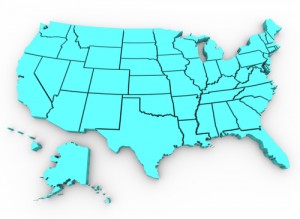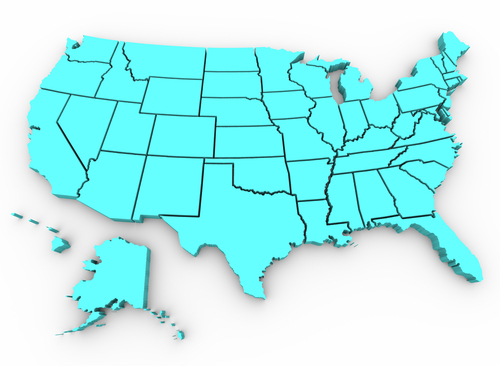 Virginia Cornwell is an Family Lawyer in Central Ohio. She is an Ohio State Bar Association Certified Family Relations Specialist.
Virginia Cornwell is an Family Lawyer in Central Ohio. She is an Ohio State Bar Association Certified Family Relations Specialist.
Where you must file for divorce depends on jurisdiction. To make it more complicated, it depends on more than one kind of jurisdiction.
 If children are involved, the first consideration is subject matter jurisdiction. Subject matter jurisdiction means the court is authorized to hear a certain kind of claim, in this case, custody matters. Under the UCCJEA, which is adopted in Ohio and most states, a court make initial custody decisions unless, generally, 1) the child has been living in that state for the last six months (the child’s home state), or, if the child has no home state, the state where the child has the most significant connection. Custody modifications have different rules. To learn more about the UCCJEA, click any of these links: https://cornwell-law.com/01/columbus-ohio-child-custody-part-4/, https://cornwell-law.com/06/interstate-family-law-jurisdiction-attorney-series-part-i/.
If children are involved, the first consideration is subject matter jurisdiction. Subject matter jurisdiction means the court is authorized to hear a certain kind of claim, in this case, custody matters. Under the UCCJEA, which is adopted in Ohio and most states, a court make initial custody decisions unless, generally, 1) the child has been living in that state for the last six months (the child’s home state), or, if the child has no home state, the state where the child has the most significant connection. Custody modifications have different rules. To learn more about the UCCJEA, click any of these links: https://cornwell-law.com/01/columbus-ohio-child-custody-part-4/, https://cornwell-law.com/06/interstate-family-law-jurisdiction-attorney-series-part-i/.
CALL NOW at (614) 225-9316 or contact us by e-mail.
A court either has subject matter jurisdiction or it does not. It is not something the parties can give the court by agreement. If an Ohio court makes orders that it did not have subject matter jurisdiction to make, those orders can be challenged, and voided, at any time. So step number one, if there are kids involved, figure out which state has subject matter jurisdiction.
CALL NOW at (614) 225-9316 or contact us by e-mail.
 The second type of jurisdiction involved in divorce is personal jurisdiction. This is what a court needs to make order over the parents, the parents’ property, and the parents’ money. This can be kind of tricky. Personal jurisdiction is usually where each parent lives. Sometimes, if parents have connections to more than one state, then a court can have “long arm” personal jurisdiction. However, your children living in a state is not enough to give a court personal jurisdiction over you. Generally, what is enough is you living in a state, you having property there, you being served with papers in a state, you (or your lawyer) filing a general entry or notice of appearance, you (or your lawyer) making an appearance in a court proceeding without stating that you are making an appearance for the purpose of challenging jurisdiction, or doing something to invoke the jurisdiction of the court which you assert has no jurisdiction over you.
The second type of jurisdiction involved in divorce is personal jurisdiction. This is what a court needs to make order over the parents, the parents’ property, and the parents’ money. This can be kind of tricky. Personal jurisdiction is usually where each parent lives. Sometimes, if parents have connections to more than one state, then a court can have “long arm” personal jurisdiction. However, your children living in a state is not enough to give a court personal jurisdiction over you. Generally, what is enough is you living in a state, you having property there, you being served with papers in a state, you (or your lawyer) filing a general entry or notice of appearance, you (or your lawyer) making an appearance in a court proceeding without stating that you are making an appearance for the purpose of challenging jurisdiction, or doing something to invoke the jurisdiction of the court which you assert has no jurisdiction over you.
So at this point, take a look at which state (or states) have personal jurisdiction over the parents (and their property and money). If there is a state that has personal jurisdiction over at least one of the parents, AND subject matter jurisdiction over the children, then that is probably the best state to file in. But there’s a hitch. There’s always a hitch.
CALL NOW at (614) 225-9316 or contact us by e-mail.
 In Ohio divorce cases, according to Ohio Revised Code 3105.03, the PLAINTIFF (the person who files the divorce), has to have been a resident of the state (lived in the state) for six months before filing a complaint for divorce. So what if you do not live in Ohio, your spouse and children do, and your spouse will not file for divorce? You may have to file for divorce in the state where you live. Unless that court has “long arm” jurisdiction over your spouse, the court will only be able to end the marriage. It will not be able to make orders regarding your spouse’s property or money, and will not be able to make orders regarding the children. Once your marriage is ended in the other state, you can file an action in juvenile court in Ohio to secure orders regarding your children.
In Ohio divorce cases, according to Ohio Revised Code 3105.03, the PLAINTIFF (the person who files the divorce), has to have been a resident of the state (lived in the state) for six months before filing a complaint for divorce. So what if you do not live in Ohio, your spouse and children do, and your spouse will not file for divorce? You may have to file for divorce in the state where you live. Unless that court has “long arm” jurisdiction over your spouse, the court will only be able to end the marriage. It will not be able to make orders regarding your spouse’s property or money, and will not be able to make orders regarding the children. Once your marriage is ended in the other state, you can file an action in juvenile court in Ohio to secure orders regarding your children.
Sound complicated? If you would like to talk to one of our Columbus Ohio Family Lawyers, please give our office a call at 614-225-9316 to schedule a telephone or office consultation.
CALL NOW at (614) 225-9316 or contact us by e-mail.
DISCLAIMER – Read it, it’s important!

 If you have a custody or visitation order from another state, and you now live in Ohio, the process for registering your order with the courts in the state of Ohio is actually relatively simple. Unfortunately, jurisdictions is an issue that can be complicated and sometimes difficult to understand. However, if the state that made the order had jurisdiction to make the order, then registering it in Ohio is pretty basic.
If you have a custody or visitation order from another state, and you now live in Ohio, the process for registering your order with the courts in the state of Ohio is actually relatively simple. Unfortunately, jurisdictions is an issue that can be complicated and sometimes difficult to understand. However, if the state that made the order had jurisdiction to make the order, then registering it in Ohio is pretty basic.  Registering your decree
Registering your decree